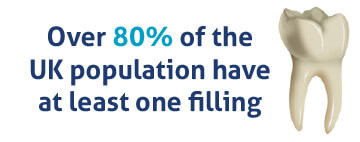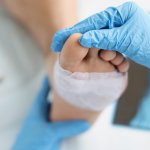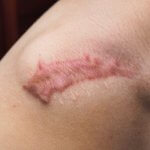In the UK over four fifths of the population have at least one filling.
Fillings are required to plug cavities caused by an acidic compound that is released by the bacteria in our mouths. Over time a tooth’s dentine (the bony tissue that makes up the bulk of the white part of the tooth) is eroded, which ultimately leaves the dental pulp exposed and prone to infection.

Filling the gap
The traditional course of action for repairing these cavities involves a visit to the dentist, where the hole is filled with long lasting artificial cement such as amalgam. Whilst these fillings provide an effective solution to the risk of infection, they can also inhibit the natural regeneration of the tooth and prevent it being fully restored.
Stem cells can repair teeth
Various studies have demonstrated that stem cells have the ability to regrow tooth tissue, meaning that they could provide an effective, natural alternative to fillings.
The dental pulp within our teeth contains a type of stem cell known as odontoblasts. Usually when a cavity forms, the odontoblasts do not have time to repair the damage before infection occurs and an artificial filling is required. However, Scientists at King’s College London have found that by plugging a cavity with an organic collagen sponge containing small amounts of a chemical know as GSK-3 (glycogen synthase kinase), they are able to protect the tooth from infection whilst giving the stem cells time to regrow the damaged tissue. The collagen sponge disintegrates slowly over time, leaving a behind a hard and completely natural repair in place of the cavity.
A natural alternative
The collagen sponge is already commercially available and GSK-3 is currently being trialled to treat Alzheimer’s, so both have met the rigorous testing and approval required for use in man. This means that it should not be long before this natural alternative to repairing cavities in our teeth is publicly available, meaning that they can made as good as new.
References:
Promotion of natural tooth repair by small molecule GSK3 antagonisis








